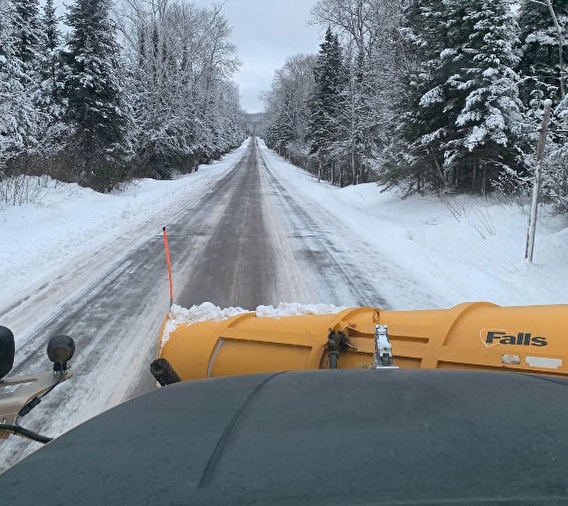
The Cook County Highway Department has been on a mission to combat chloride pollution infiltrating Minnesota’s pristine wilderness. To that end, the department has set a goal for chloride-free winter maintenance, starting from annual road salt use that averages 300 tons. Staff experimented with liquid-treated sand to reduce the use of granular road salt while maintaining road safety.
The department received a $20,000 grant through the Local OPERA Program to evaluate the usability of sand treated with potassium acetate (KAc), particularly its adherence to roads and melt capacity. Though the KAc-treated sand initially exhibited better adhesion and melt capacity than conventional salt/sand mix on pavement, it melted excessively on gravel roads, affecting traction. Over time, the sand’s effectiveness diminished due to leaching and freezing issues, decreasing its usability.
Effects of cold, wet winter add challenges to the mix
The team used CF7®, a potassium acetate deicer produced by Cryotech. It treated the sand at 10 gallons per ton using a hydroseeder and mixing equipment on hand. However, challenges related to the sand’s inability to adequately retain the liquid deicer emerged during the application process, which proved labor-intensive and slower than anticipated. In addition, significant leaching occurred in the stockpile of treated sand, which resulted in about 5 percent of the pile becoming frozen and unusable. Severe temperatures below zero also caused the sand to clump and freeze in the trucks, hindering effective application.
Despite its environmental benefits, the KAc-treated sand incurred a 22 percent higher cost than conventional salt/sand mix. The project also highlighted the need for drier sand or alternative deicer forms, such as calcium magnesium acetate (CMA) in granular form, for better suspension and retention.
Mixed results provide insights and encouragement
This eight-month trial showcased the benefits and limitations of liquid-treated sand. Despite the increased cost, potassium acetate proved to be a viable non-chloride alternative for winter road maintenance, particularly on paved roads prior to the onset of severe low temps and leaching. Most important, the project produced a 12.5 percent reduction in the total road salt use of Cook County by changing just one plow route. The impact of going salt-free on that one route for all but a handful of events emphasized the environmental benefit of the change.
The project provides valuable insights for other agencies and emphasizes the potential for reduced chloride use without significant equipment changes.